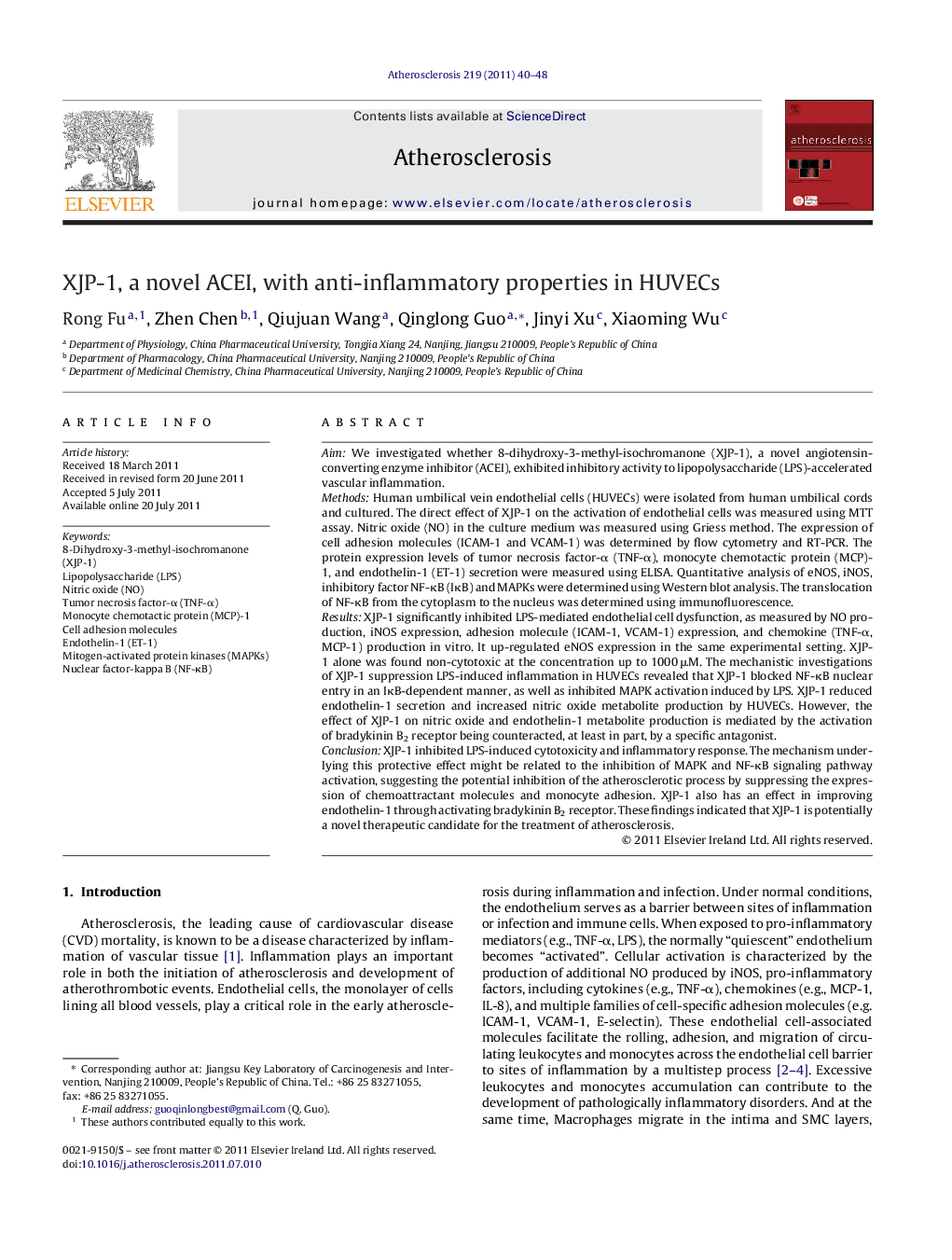| Article ID | Journal | Published Year | Pages | File Type |
|---|---|---|---|---|
| 5949796 | Atherosclerosis | 2011 | 9 Pages |
Abstract
XJP-1 inhibited LPS-induced cytotoxicity and inflammatory response. The mechanism underlying this protective effect might be related to the inhibition of MAPK and NF-κB signaling pathway activation, suggesting the potential inhibition of the atherosclerotic process by suppressing the expression of chemoattractant molecules and monocyte adhesion. XJP-1 also has an effect in improving endothelin-1 through activating bradykinin B2 receptor. These findings indicated that XJP-1 is potentially a novel therapeutic candidate for the treatment of atherosclerosis.
Keywords
Related Topics
Health Sciences
Medicine and Dentistry
Cardiology and Cardiovascular Medicine
Authors
Rong Fu, Zhen Chen, Qiujuan Wang, Qinglong Guo, Jinyi Xu, Xiaoming Wu,
